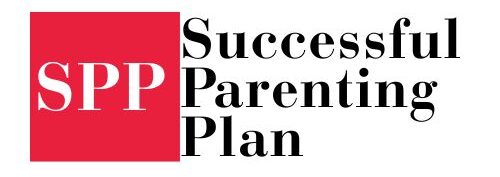Join on WhatsApp
Get the latest updates directly on WhatsApp – motivation, news & more!
Greater Western Water (GWW) is rolling out a major cost-of-living relief measure in 2025, offering an automatic water-bill credit of up to $240 for thousands of households across Victoria. This initiative comes at a crucial time as rising utility costs continue to pressure family budgets. Unlike past support programs that required lengthy applications, the GWW credit will be applied directly to eligible accounts, ensuring no one misses out on the benefit.
What Is the GWW Water-Bill Credit?
The GWW water-bill credit is part of a broader government-backed cost-of-living support plan designed specifically for essential services. Water is a non-negotiable household expense, and the $240 annual discount is expected to make a tangible difference for eligible customers. Instead of being a one-off payment, the credit reduces bills over the year, providing sustainable relief rather than short-term assistance.
This approach targets households most affected by financial pressures, especially in regions with higher summer water usage. In Victoria, seasonal peaks in water consumption often coincide with increased energy bills, making the GWW credit a welcome relief for homeowners and tenants.
Automatic Application – No Action Required
One of the standout features of the program is its automatic application process. Eligible accounts will be identified through existing GWW billing records, concession databases, and government partner systems. This means customers won’t need to complete forms, attend service centers, or submit proof of eligibility.
By removing the need for manual applications, GWW is ensuring that the credit reaches households quickly and with minimal administrative burden. The system also prevents delays and confusion, particularly for seniors or those unfamiliar with application procedures.
Who Qualifies for the Credit?
Eligibility for the $240 credit will depend on meeting specific criteria:
- Pensioner concession holders
- Commonwealth Health Care Card holders
- Disability support recipients
- Seniors registered with recognised concession programs
- Households currently enrolled in government cost-of-living relief schemes
Additionally, residents must be in areas officially serviced by Greater Western Water. Tenants in eligible rental properties may also benefit, provided their water account is directly billed by GWW.
How and When Will the Credit Be Applied?
The $240 relief will be distributed across billing cycles in 2025, lowering quarterly invoices for eligible households. Depending on usage patterns, customers will see the discount reflected automatically on statements, reducing the payable amount without affecting service levels.
For most households, the first bill showing the reduced charge is expected in early 2025. Those newly eligible due to concession status changes will have the credit applied once their updated details are registered in GWW’s system.
The Bigger Picture – Cost-of-Living Assistance
The GWW initiative aligns with wider national and state programs aimed at tackling household expenses. Throughout 2025, multiple utility providers are reviewing ways to ease financial stress for customers, such as energy bill rebates and public transport concessions.
Water charges, often overlooked compared to electricity or gas bills, can form a significant part of household costs, particularly in larger family homes or properties with high garden upkeep. By targeting this expense, GWW is directly addressing a common financial pressure point for Victorians.
Why Automatic Credits Are a Game Changer
Automatic benefits reduce the risk of eligible customers missing out due to lack of awareness or complicated application processes. In previous support schemes, many households failed to claim entitlements simply because they did not know how to apply.
With the GWW water-bill credit, eligibility is determined in-house, and relief is applied without customers lifting a finger. This ensures maximum participation and equitable distribution of resources across the community.
Long-Term Benefits for Households
The $240 credit may seem modest when viewed against annual utility costs, but its impact can be significant for fixed-income families. By lowering essential service bills, households can redirect funds toward other necessities such as:
- Groceries and fuel
- Housing costs and rent
- Medical services and prescriptions
- School-related expenses for children
For pensioners, the measure offers immediate improvement in monthly budgeting. For young families balancing childcare, food, and housing costs, it’s an essential buffer against financial instability.
Setting a Standard for Utility Providers
GWW’s proactive and customer-focused approach sets a precedent for other utilities in Victoria and beyond. Utility companies often rely on cumbersome claim processes, but automatic credits demonstrate how targeted relief can be delivered more effectively.
This initiative also boosts public confidence in service providers, reinforcing the perception that utilities can and should play an active role in supporting communities during economic hardship.
Key Takeaways for 2025
- Credit amount: Up to $240 annually
- Eligibility: Pensioners, concession holders, disability support beneficiaries, and approved cost-of-living program participants
- Application: None required – automatic billing credit via GWW systems
- Coverage area: Greater Western Water service regions in Victoria
- Start date: Applied progressively from early 2025
As utility costs remain a pressing concern, measures like the GWW credit are not just temporary relief options—they are tools for creating more sustainable household budgets. With its automatic approach, GWW is ensuring that the most vulnerable customers are supported without unnecessary bureaucratic barriers.
Victorian households should expect their first reduced water bill in 2025, with savings continuing throughout the year. For many, this could be the difference between barely managing and maintaining a modest level of financial security.




